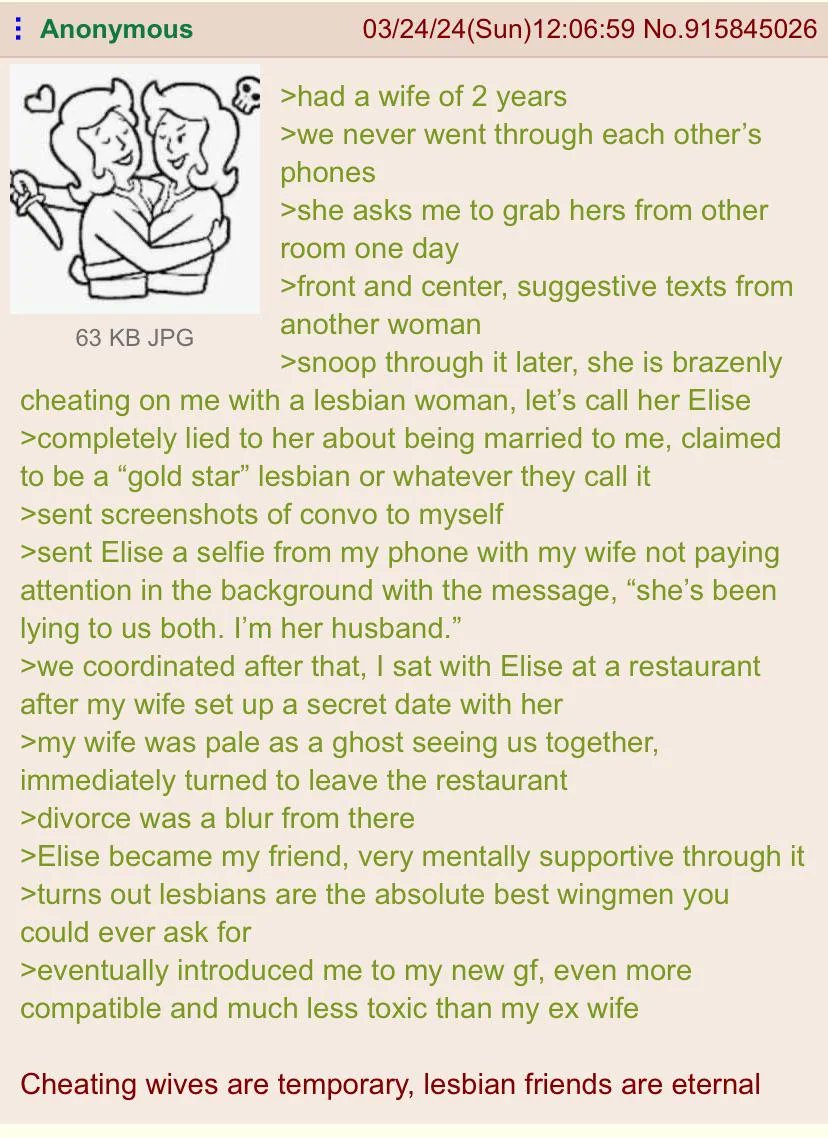this post was submitted on 16 May 2024
1442 points (98.3% liked)
Greentext
6892 readers
838 users here now
This is a place to share greentexts and witness the confounding life of Anon. If you're new to the Greentext community, think of it as a sort of zoo with Anon as the main attraction.
Be warned:
- Anon is often crazy.
- Anon is often depressed.
- Anon frequently shares thoughts that are immature, offensive, or incomprehensible.
If you find yourself getting angry (or god forbid, agreeing) with something Anon has said, you might be doing it wrong.
founded 2 years ago
MODERATORS
you are viewing a single comment's thread
view the rest of the comments
view the rest of the comments

Traditional relationship models are so weird.
Making up all these different definitions of “cheating” vs “emotional cheating” and distinguishing them from other instances of hurtfully not honoring agreements.
It's just that: people have an agreement with each other and one of them expressed that it's very important for them emotionally for the other to honor it. Then the other didn't. That expectedly hurts.
Why is there a special word when the agreement is about sex?
They aren't even "traditional" really. We didn't start pairing off in "lifelong partnerships," aka marriage, until a few thousand years ago. We spent hundreds of thousands of years existing in communal tribes.
I'm not disagreeing with your core message: monogamy isn't “older” than polygamy. But neither is it the other way around: We probably did both since very long ago.
The notion that there's a human “tech tree” of civilization is wrong. E.g. Agriculture doesn't “follow” hunting and gathering, and neither does centralized power (like in a state) “follow” agriculture. Humans have been experimenting with social structures since basically the beginning.
So within the last tens of millenia, there were probably societies that were monogamous, some that were polygamous, and some that rotated or did both, and of these some depending on some social stratification and some depending on personal preference.
Source: “The dawn of everything”